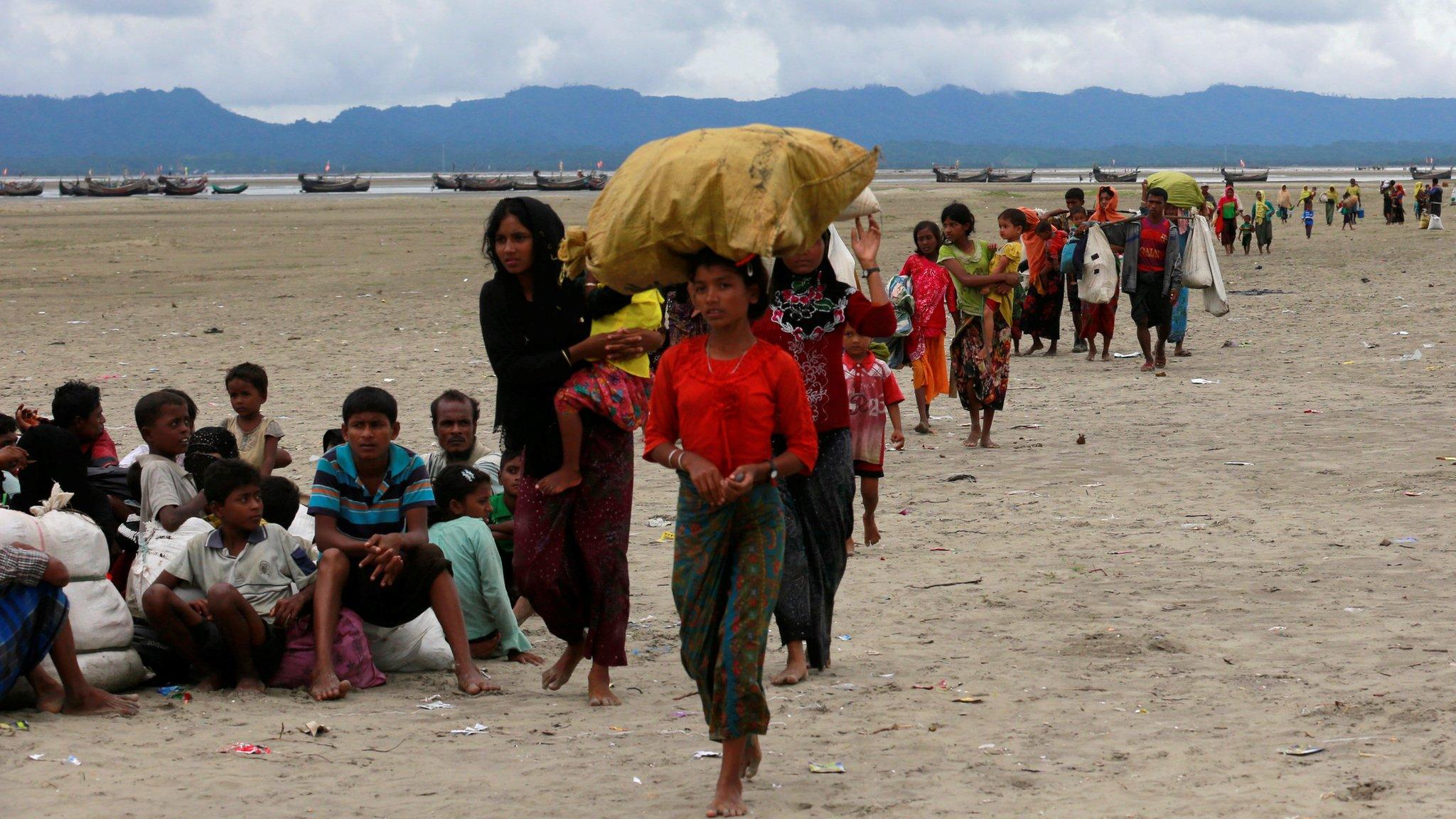Rohingya crisis: Rakhine aid boat 'blocked by Myanmar mob'
- Published
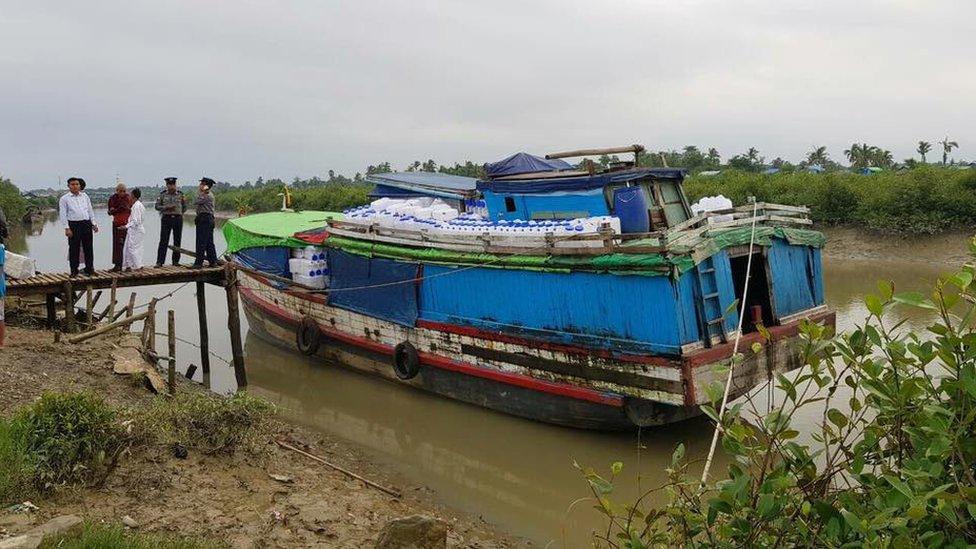
Myanmar's Information Committee posted a picture to Facebook which it said was of the boat carrying ICRC supplies
Police in Myanmar's Rakhine state have fired warning shots to disperse a Buddhist mob trying to block a boat carrying aid, reports say.
The boat was bound for the violence-hit north, where a military campaign sparked by militant attacks has forced hundreds of thousands of Rohingya Muslims to flee the country.
The mob threw petrol bombs at the boat and arrests were made, officials said.
An official said the mob thought the aid was only for the Rohingya.
Both Rohingya who have fled across the border into Bangladesh and those who stayed in Rakhine urgently need help, aid agencies say.
The mostly Muslim Rohingya are a minority in Buddhist-majority Rakhine state. Myanmar denies them citizenship, saying they are illegal immigrants, and the state has seen violent ethnic conflict in the past.
The latest crisis began on 25 August, when Rohingya militants attacked police posts. Since then, more than 400,000 Rohingya have fled to Bangladesh amid a military crackdown that the UN human rights chief has said "seems a textbook example of ethnic cleansing".
Food, water and shelter are desperately needed for the new arrivals, aid groups say, but there are also serious concerns for those who stayed in Rakhine, where many Rohingya villages have been razed.
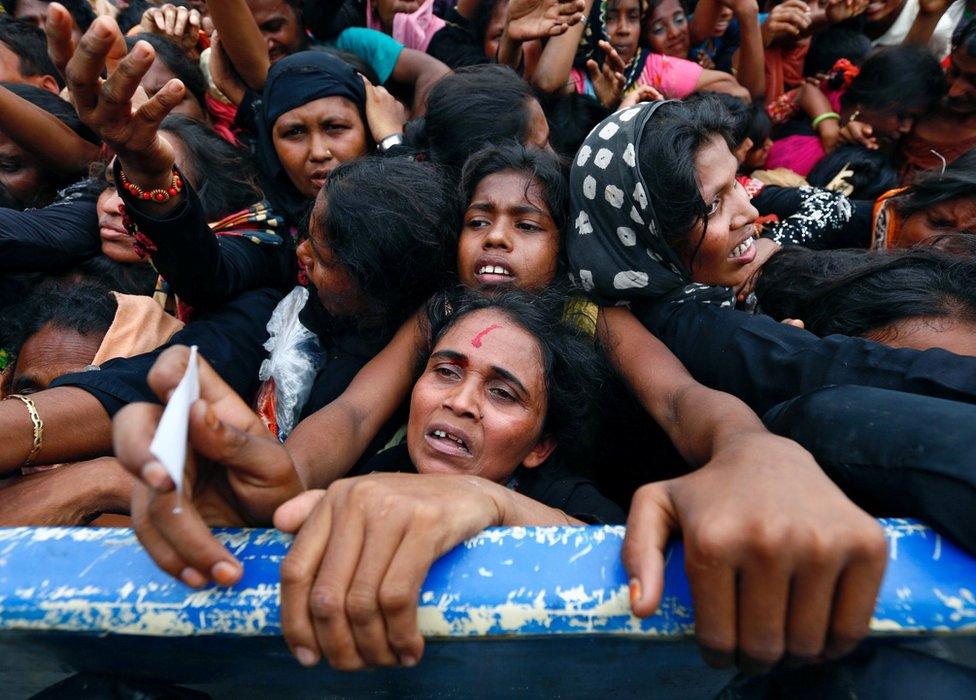
Tens of thousands of Rohingya migrants are now in makeshift camps in Bangladesh with limited aid available
But getting aid to displaced people who remain inside Myanmar is not easy, reports the BBC's Jonah Fisher. Aid agencies face restrictions from the authorities and at times open hostility from members of the Buddhist community who do not want them to help Rohingya Muslims.
'There for everyone'
The boat was being loaded with relief supplies from the International Committee of the Red Cross (ICRC) in Rakhine's capital, Sittwe, on Wednesday night when a mob gathered.
Myanmar's government said the crowd of several hundred people grew "aggressive" and tried to prevent the aid being loaded before being dispersed by about 200 police.
"People thought the aid was only for the Bengalis," Secretary of the State Government Tin Maung Swe told Reuters news agency, using a name for the Rohingya they say is discriminatory.
ICRC spokeswoman Graziella Leite Piccoli confirmed to the BBC that there had been an incident, but could not confirm other details.
She said aid workers "managed to engage the people in dialogue, communicating that we work transparently and were there for everyone in need", and were eventually left alone with the supplies.
The boat remains in Sittwe. A spokesman for the United Nations said the incident would further disrupt already extremely patchy aid delivery.
Across the border in Bangladesh, a truck carrying aid for the Rohingya crashed into a field on Thursday, killing nine people and injuring another 10. Those who died were workers helping to distribute supplies, reports said.
'Deeply concerned'
Myanmar's government is facing mounting international criticism for its response to the Rohingya crisis. On Tuesday, de facto leader Aung San Suu Kyi delivered a speech that did not address allegations of serious rights abuses by the army.
The BBC's Jonah Fisher looks at Ms Suu Kyi's speech
She said there had been no acts of violence or village clearances since 5 September, a claim which has been widely disputed.
On Wednesday Myanmar's Vice-President Henry Van Thio told the UN General Assembly that his government was "deeply concerned" about the exodus from Rakhine state, saying Myanmar was investigating "a problem of significant magnitude".
But he repeated the government line that the reason for the upheaval was unclear and that the "great majority" of Muslims (Myanmar's government does not use the term Rohingya) had stayed behind.
He said not just Muslims but other minority groups had fled, and security forces had been told to "take full measures to avoid collateral damage and the harming of innocent civilians".
Watch: Who are the Rohingya?
Myanmar's military says its operations are aimed at rooting out terrorists and has repeatedly denied targeting civilians. But those who have fled accuse troops and Buddhist mobs of burning their villages and attacking and killing civilians in what they say is a move to drive them out.
In the US, Vice-President Mike Pence accused the military of showing "terrible savagery" towards the Rohingya, the strongest remarks from the administration yet on the crisis.
He said the violence would "sow seeds of hatred and chaos that may well consume the region for generations to come and threaten the peace of us all".
- Published19 September 2017
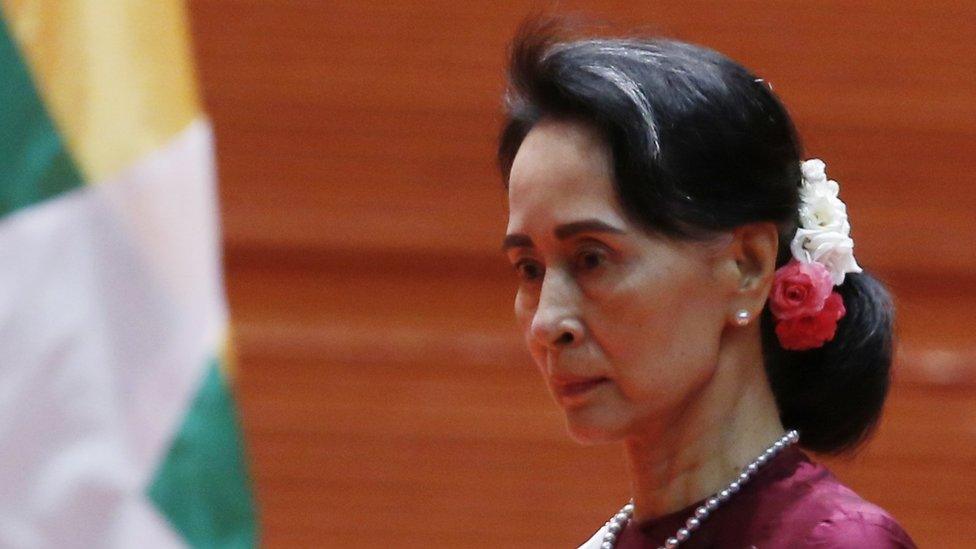
- Published19 September 2017
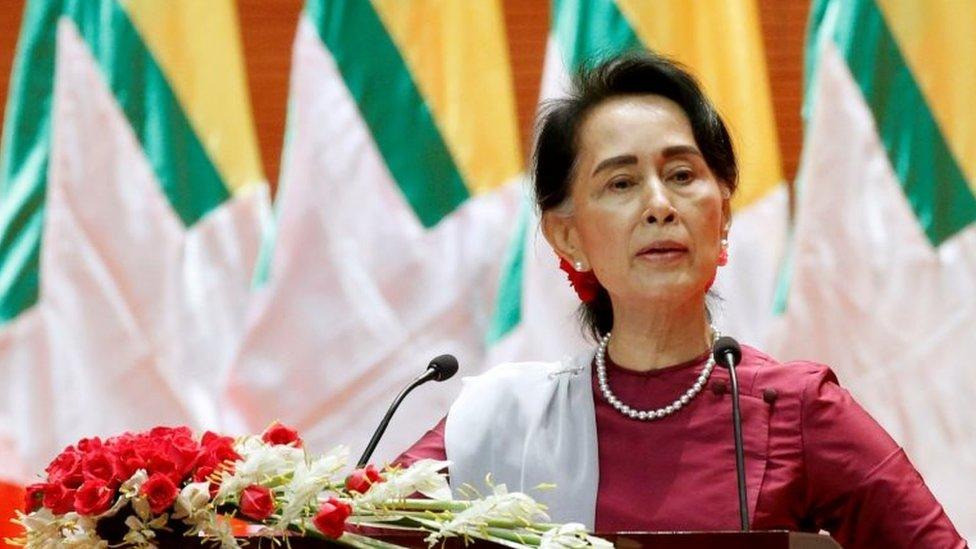
- Published19 September 2017
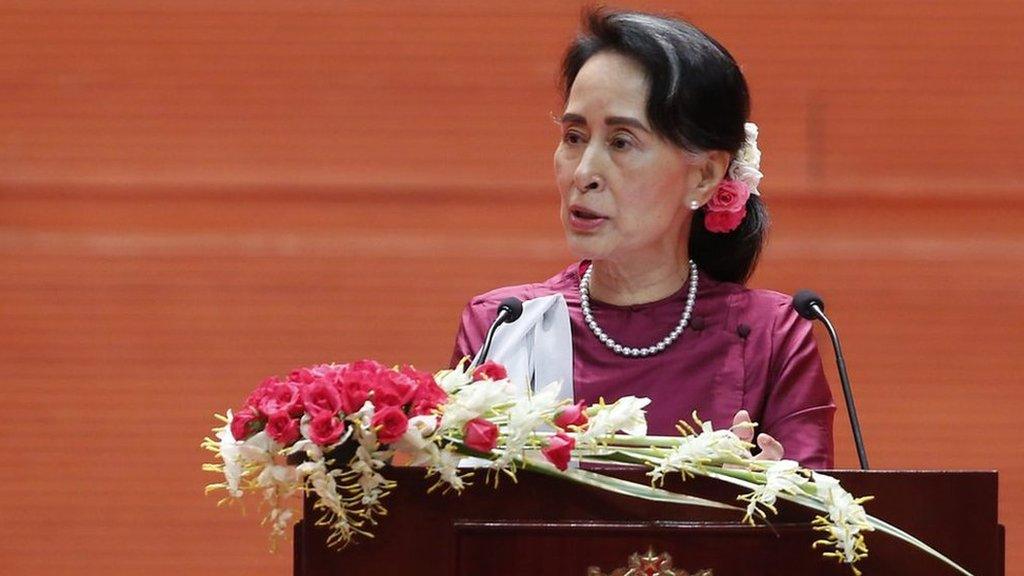
- Published20 September 2017
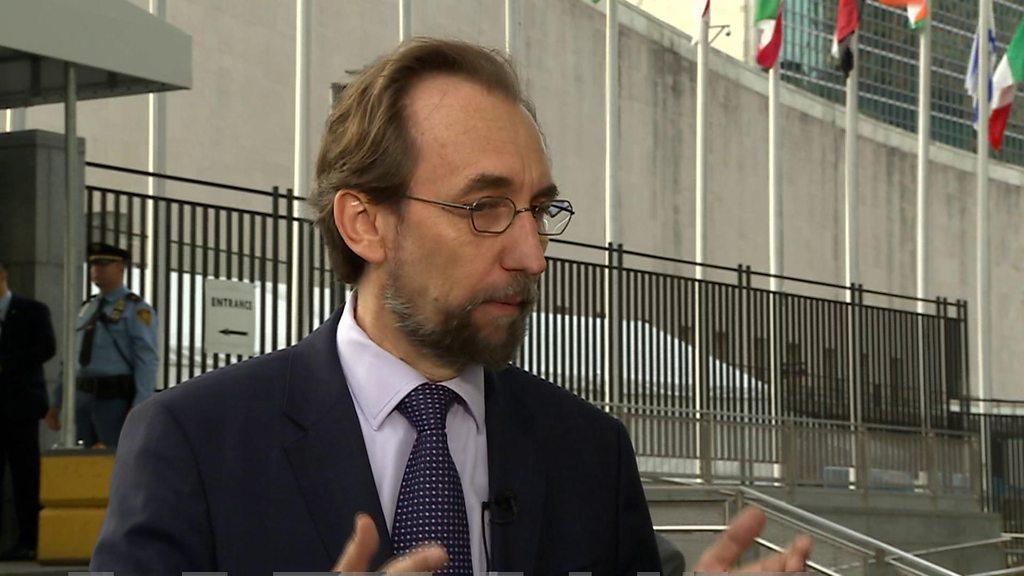
- Published10 January 2017
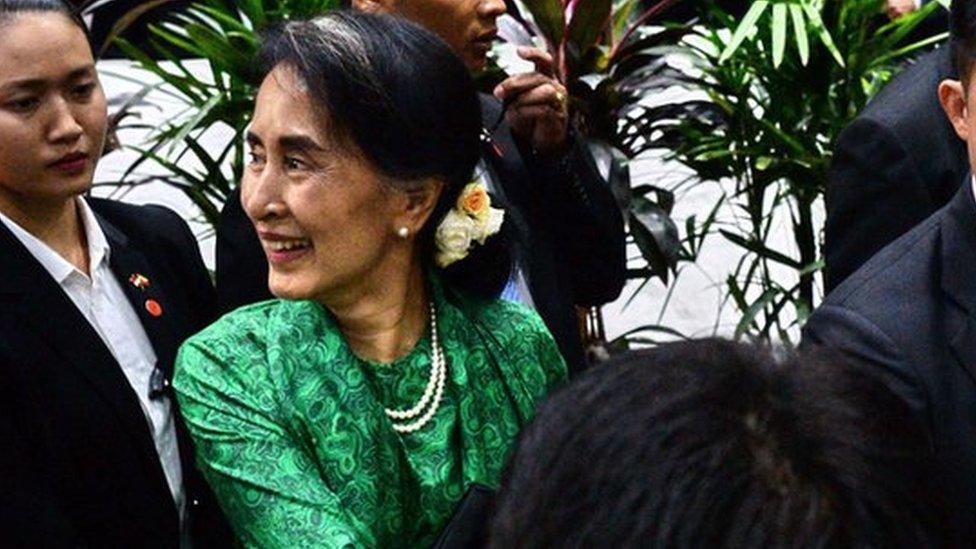
- Published7 September 2017
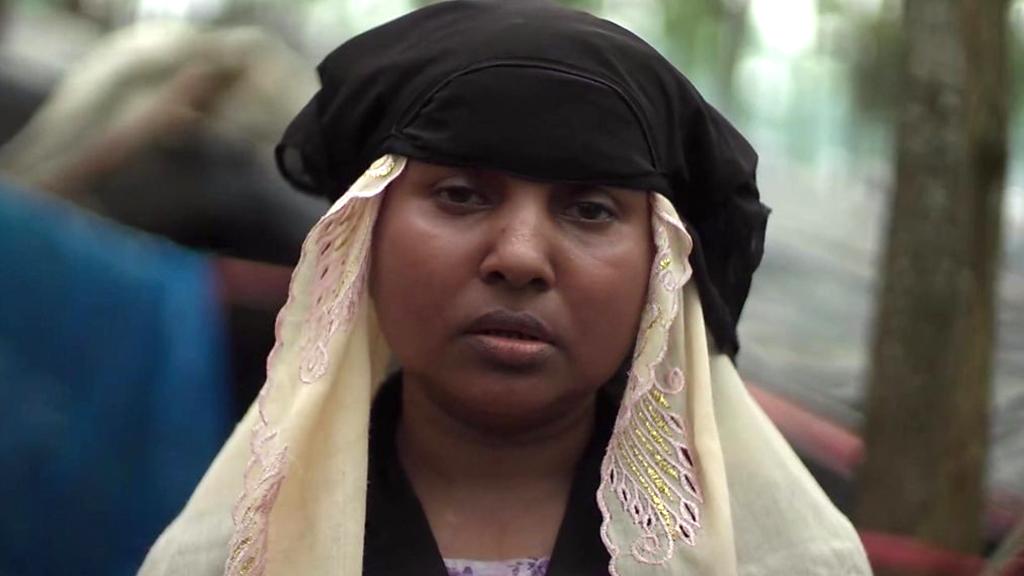
- Published11 September 2017
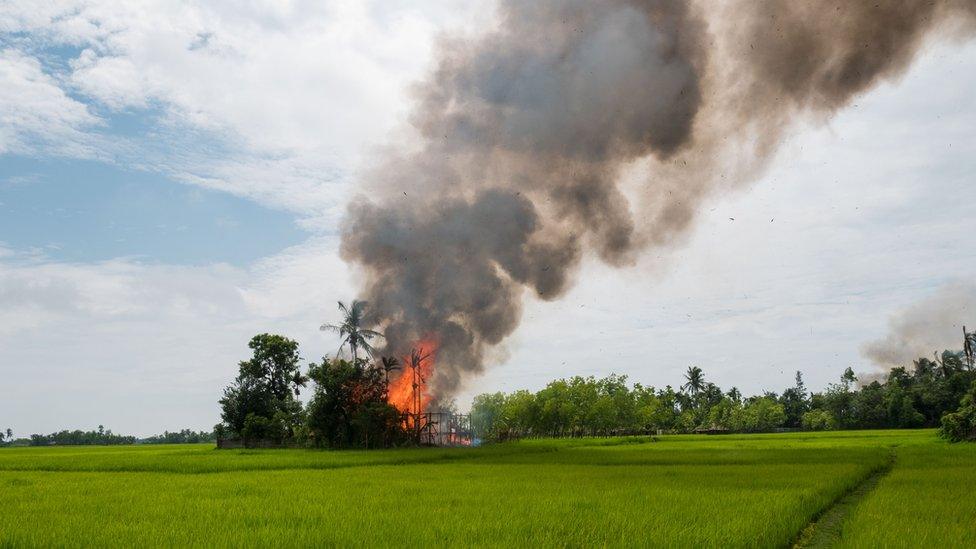
- Published19 September 2017
